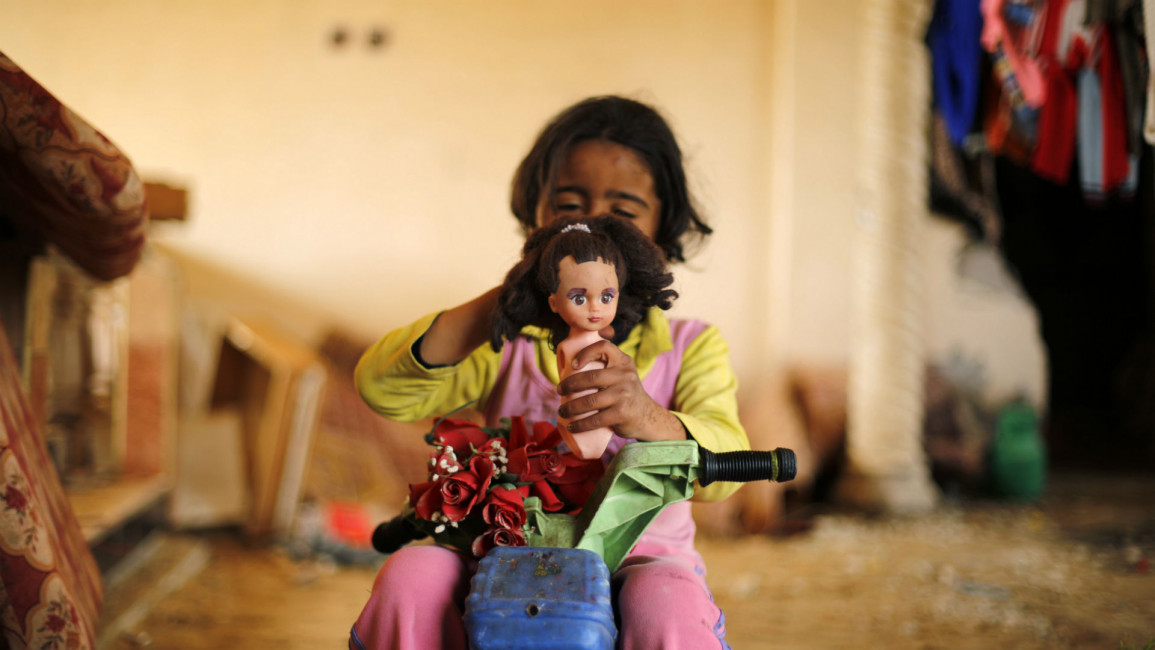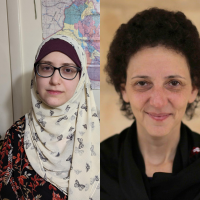
What about the rockets?
During the last couple of weeks, Westminster lobby group Labour Friends of Israel (LFI) has been pushing its new publication on Gaza, the key message of which is that the reconstruction of the fenced-in enclave should be contingent on its demilitarisation.
My intention here is not to set out the clear, legal and moral, arguments against LFI's 'disarmament for development' approach – indeed, leading NGOs have already done so. Rather, I would like to make a different point with regards to Israel advocacy in Western capitals.
| The existence of Hamas or any other Palestinian faction changes absolutely nothing about Israel's legal obligations. |
In an 18-page briefing published by LFI, Hamas is mentioned 138 times. By contrast, "international law" or the Geneva Conventions are not referred to even once. Nor does LFI refer to the status of the West Bank and Gaza Strip as under military occupation.
In that sense, this publication is a microcosm of a key part of Israel’s propaganda efforts. In spokespersons’ media appearances, leaders’ speeches, and embassy press releases, Israel’s hasbara (PR) discourse is repetitively consistent: Hamas and rockets.
This question of 'What about the rockets?', or 'What about Hamas?', can be responded to in three ways.
First, the history and origins of the 'conflict'. Hamas emerged in the Occupied Palestinian Territory some 40 years after the Nakba, four decades after the Zionist movement had ethnically cleansed the majority of Palestinians from their homeland.
It was in 2001, 53 years after the Nakba, when Palestinians in the Gaza Strip first fired a rocket at the lands from which they had been expelled (and 34 years into a military occupation of the West Bank and Gaza Strip that continues to this day).
And no, the 'disengagement' of 2005 – Israel's unilateral redeployment of settlers and armed forces from inside Gaza – did not end the occupation. Israel has retained control over the Gaza Strip’s air space and territorial waters, most border crossings (and thus control of movement of goods and people) and even the population registry.
The Israeli army has also continued to attack Gaza through routine ground raids, shooting of civilians, airstrikes and extra-judicial executions (even leaving aside from the large-scale assaults of 2008-’09, 2012, and 2014). In 2006, for example, the Israeli military fired some 14,000 artillery shells into the Gaza Strip (and killed 163 Palestinians, including 36 children, in July alone).
As Lisa Hajjar wrote in 2012 for Jadaliyya:
"'Occupation' is a legal designation of an international nature. Israel’s occupation of Gaza continues to the present day because (a) Israel continues to exercise 'effective control' over this area, (b) the conflict that produced the occupation has not ended, and (c) an occupying state cannot unilaterally (and without international/diplomatic agreement) transform the international status of occupied territory except, perhaps, if that unilateral action terminates all manner of effective control."
In addition, as Israeli NGO B’Tselem notes, while "the broad scope of Israeli control in the Gaza Strip" is sufficient "that the laws of occupation continue to apply", even if the territory is not considered occupied, "Israel still bears certain responsibilities under international humanitarian law."
Which brings us to the second part of the answer – Israel's obligations. The existence of Hamas or any other Palestinian faction changes absolutely nothing about Israel's obligations under the relevant international legal framework for the rules of war as well as occupation.
Israel's grave violations of international law, in its indiscriminate use of force and strikes on civilian targets, are not 'cancelled out' by the actions of any other group or actor. Indeed, they could be seen as more serious when conducted by a state party which professes to adhere to a higher moral standard.
Third and finally, we do not need to look very hard to see how Israel and its armed forces conducts itself without 'Hamas' or 'rockets'.
Strikingly, while Israel was attacking Gaza in July-August 2014, its armed forces were also killing unarmed Palestinians in the West Bank – 32 victims between June 13 and August 26, along with a further 1,397 injured.
Over the course of 2014, in the 'demilitarised', rocket-less West Bank, the Israeli army killed 56 Palestinians and injured another 5,868. 12 of those killed were children. The use of live ammunition against occupied Palestinian civilians accounted for almost all fatalities and around 1 in 5 injuries.
Palestinians, meanwhile, typically confront Israeli occupation forces with stones, or, in a few cases, Molotov cocktails, improvised fireworks and explosive devices.
As Amnesty International put it in their annual report for 2014, "in the West Bank, Israeli forces carried out unlawful killings of Palestinian protesters, including children, and maintained an array of oppressive restrictions on Palestinians' freedom of movement while continuing to promote illegal settlements and allow Israeli settlers to attack Palestinians and destroy their property with near total impunity."
And all of that without a rocket in sight.
Opinions expressed in this article remain those of the author and do not necessarily reflect the opinions of al-Araby al-Jadeed, its editorial board or staff.




